Affiliate links on Android Authority may earn us a commission. Learn more.
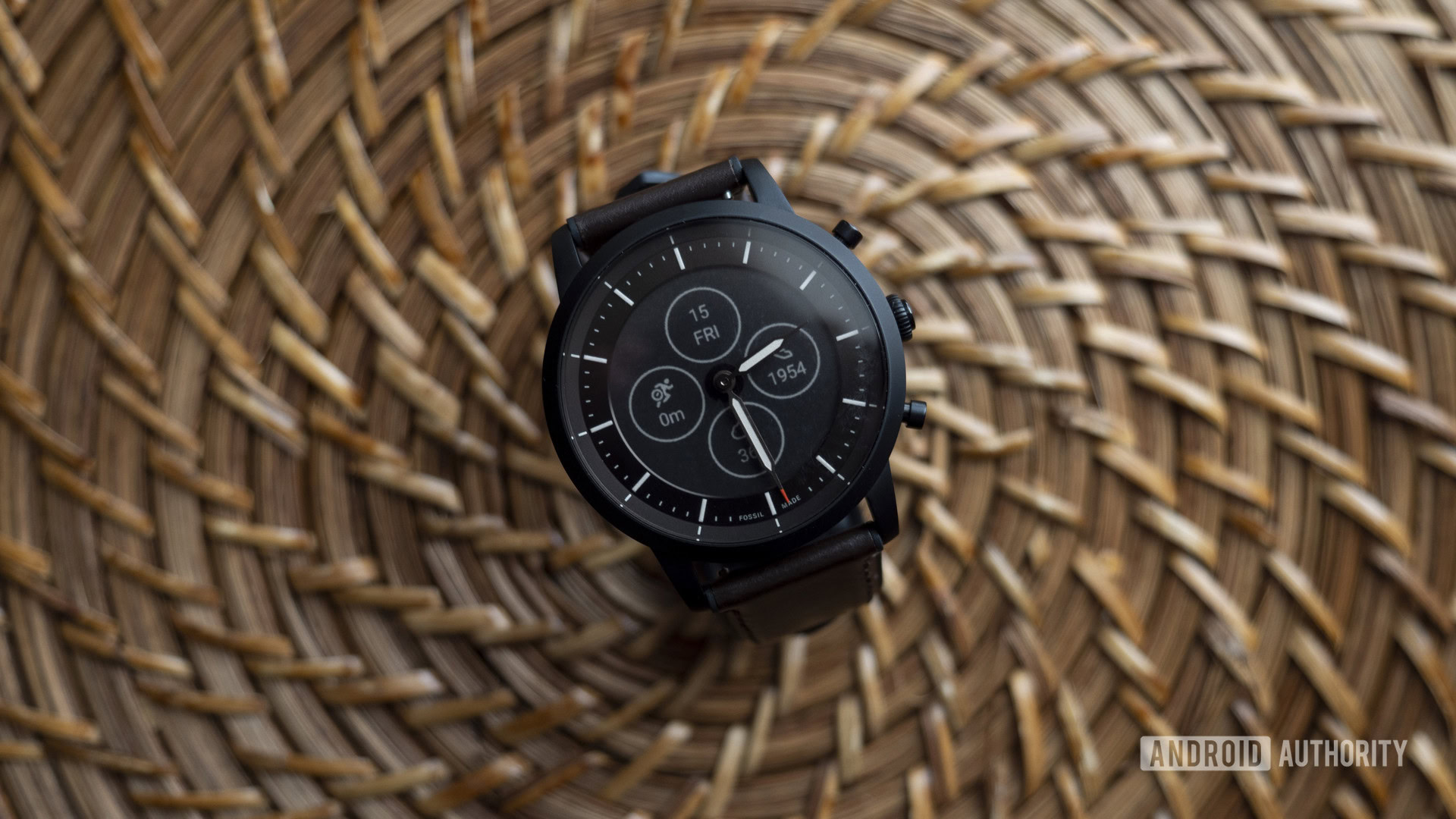
Fossil Hybrid HR review: Beautifully flawed
Published onJune 27, 2022
Fossil Hybrid HR
What we like
What we don't like
Fossil Hybrid HR
It’s 2013. You look down at your Pebble smartwatch and think, “E-ink displays are perfect for smartwatches. Why don’t more companies use these?” A few years later, Pebble is bought by Fitbit, and e-ink smartwatches mostly cease to exist. That is until the Fossil Hybrid HR.
The Fossil Hybrid HR strikes a unique blend of classic analog aesthetics and just enough smart features, making for an enticing package for those who don’t need a supercomputer on their wrist. The Hybrid HR isn’t going to be for everyone. But for a certain type of user, this might be one of the better alternatives to a traditional smartwatch. Read Android Authority’s Fossil Hybrid HR review to find out why.
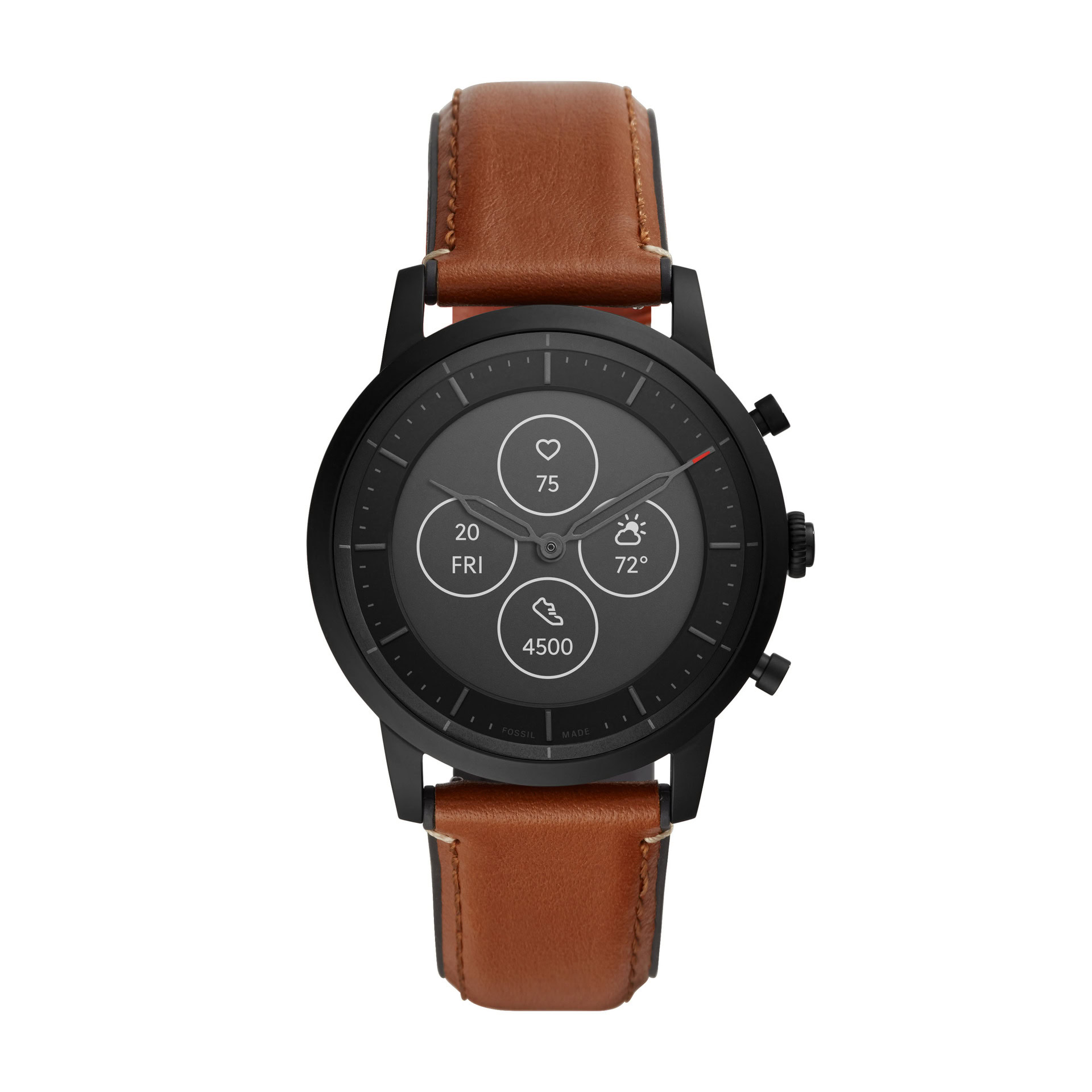
A newer version of this device is now available. The Fossil Gen 6 Hybrid brings an SpO2 sensor, Amazon Alexa support, and new watch styles to the table.
Update: June 2022: We have updated our Fossil Hybrid HR review with details on the newly-launched Gen 6 Hybrid, the latest updated software, new pricing details, and new competition.
Fossil Hybrid HR review: The big picture
Hybrid smartwatches come in a few different flavors: Some will keep track of your daily activity and nothing else, while others are full-fledged smartwatches with hidden displays. Some devices are somewhere between the two. The Fossil Hybrid HR falls at the smarter end of the spectrum. It offers far more functionality than the Withings Move or Move ECG and fewer smart features than the Garmin vivomove 3.
Just don’t call this an Apple Watch competitor. It’s a smartwatch for people who don’t want the issues normally associated with traditional smartwatches: poor battery life and a step down in aesthetics.
Design and display
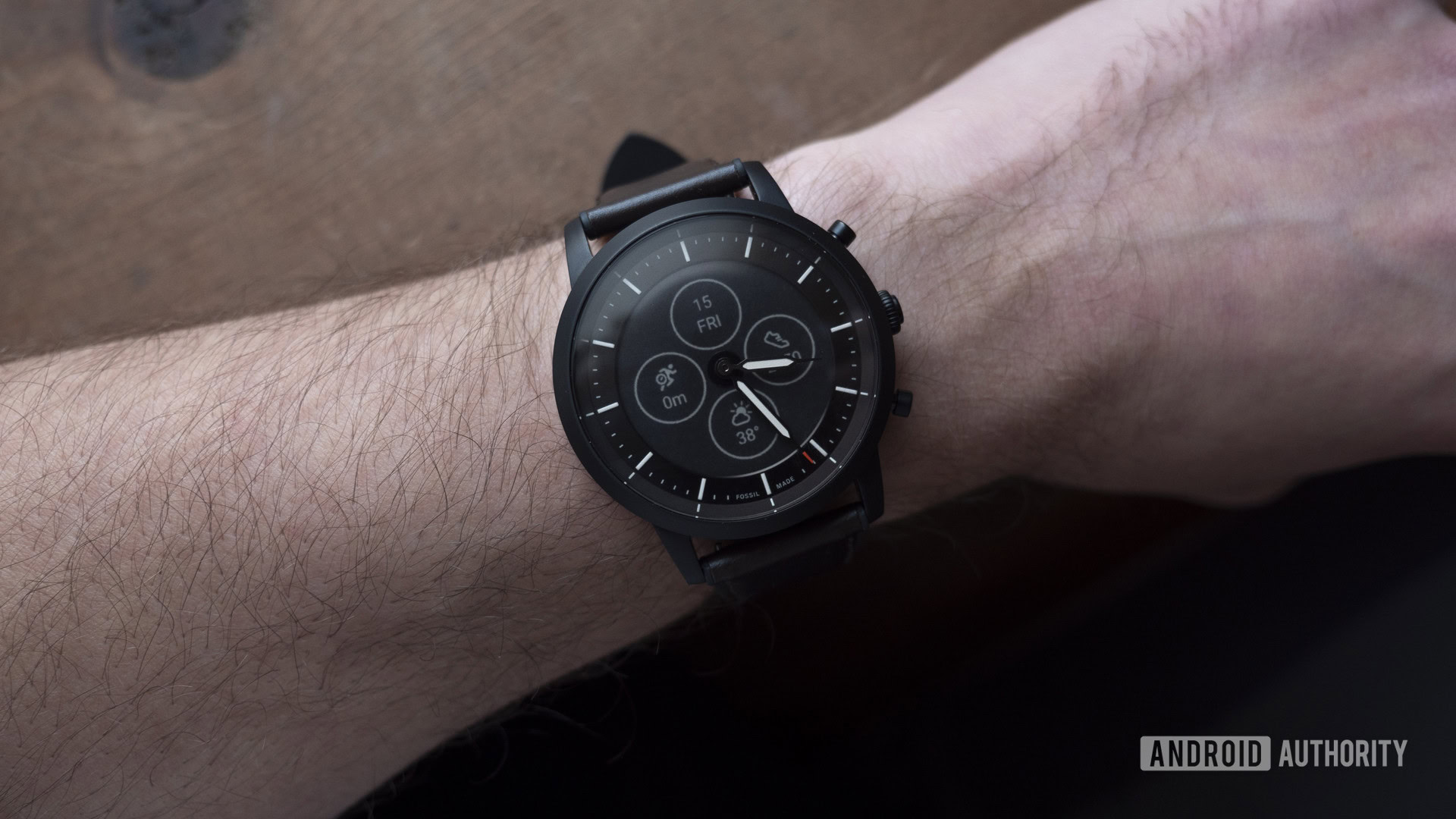
- 1.06-inch always-on “read-out” e-ink display
- Non-touchscreen
- Case size: 42 x 13mm
- Stainless steel case
- Interchangeable 22mm straps
- 2+ week-long battery life
You’d be forgiven for thinking this is an analog-only watch at first glance. The Fossil Hybrid HR certainly has analog watch elements, like the physical watch hands and number markings around the bezel. But the big news here is the display.
Fossil isn’t calling it e-ink (the company prefers “read-out” display), but this is essentially the same tech you’d find in a Kindle or an old Pebble smartwatch. E-ink has its pros and cons, so not everyone will be on board with this type of display. Personally, I love it, though there are some downsides you’ll have to live with.
First, the positives: E-ink doesn’t use much battery, allowing the Hybrid HR to last upwards of two weeks on a single charge. I haven’t had mine for that long, so I can’t say for sure, but I have been impressed so far. My unit drained about 7% after going through the setup process, receiving a software update, and tracking a 45-minute treadmill run. On lighter days, the watch only drops a few percentage points. I’d say Fossil’s battery estimates are spot on here.
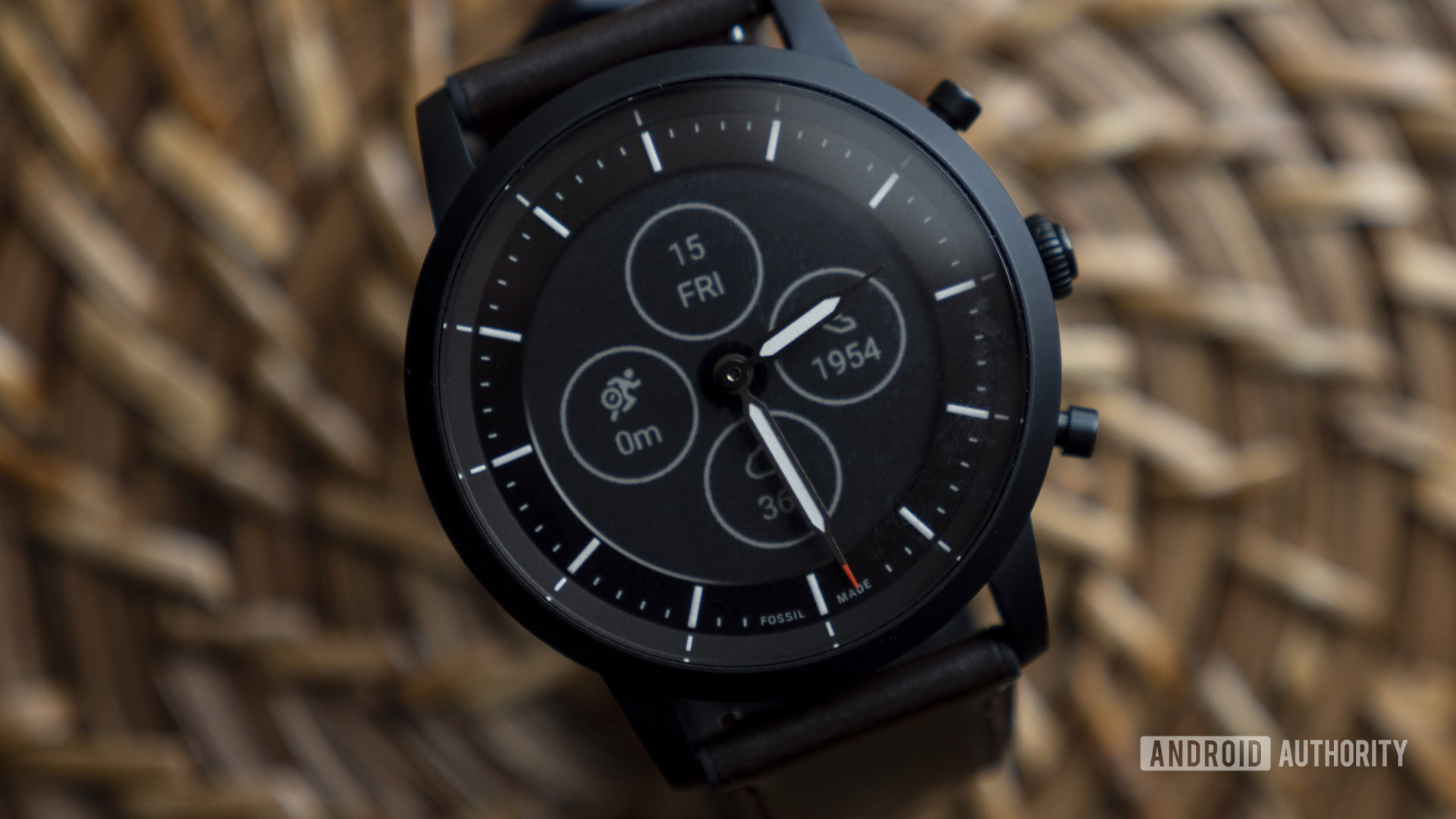
This type of display also blends in much more nicely with the watch face. It stays in the background for the most part, and you really only notice it when you need to check notifications or do something with the watch. It just makes the watch look much sleeker than something with an AMOLED display.
E-ink displays have very low refresh rates, causing them to hang for a few moments before showing the next screen or updating with the proper information. Pebble got this down to a science in later years, and those smartwatches actually felt speedy. The Hybrid HR lags a bit, though. I’ve found myself deliberately not checking through notifications or pulling up the weather so that I didn’t have to wait for the OS to catch up with my button presses. The display is only half the issue; we’ll talk about software navigation in a little bit.
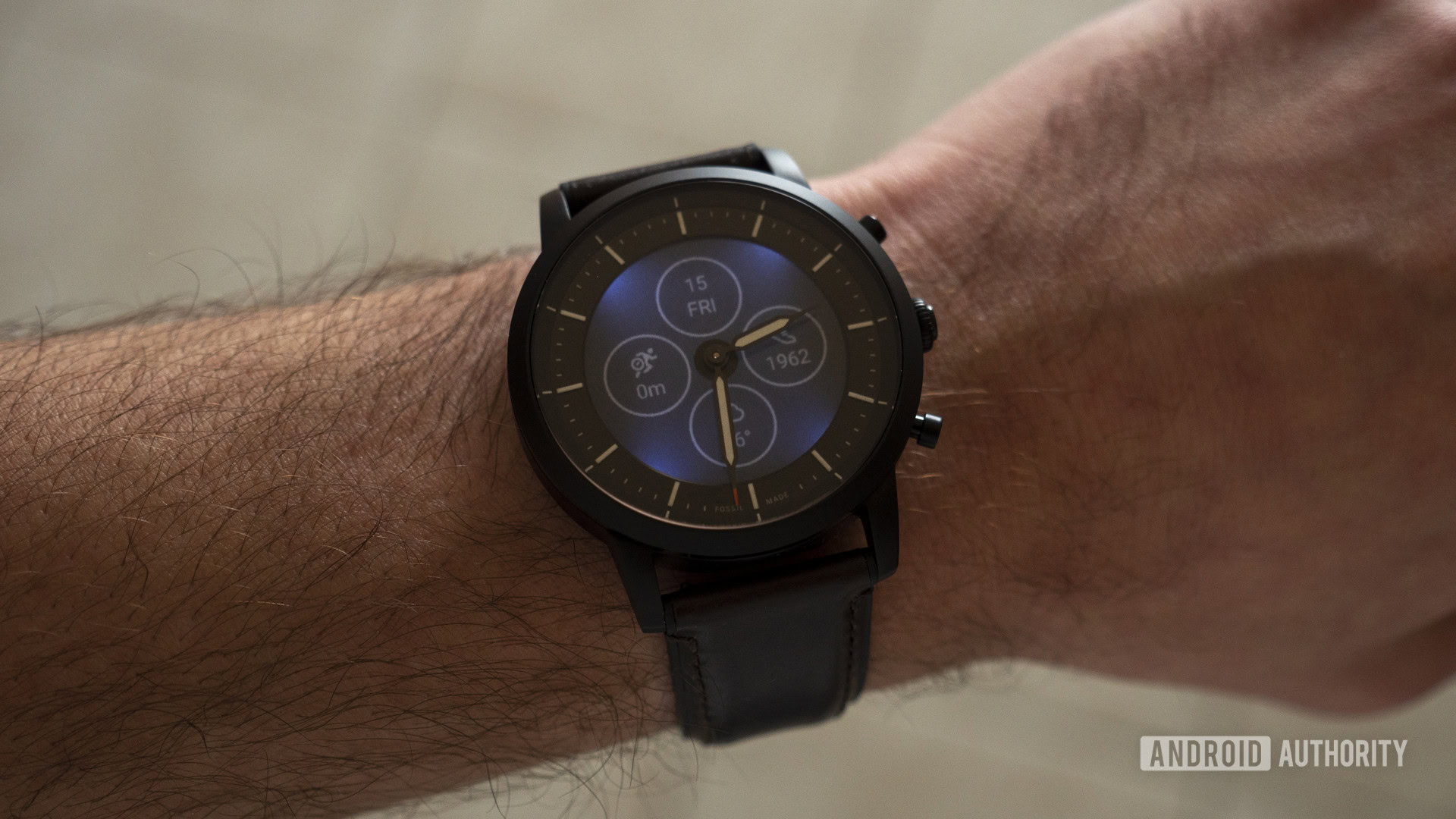
The Hybrid HR’s display isn’t lit up by default, so it’s tough to see in low lighting conditions. Fossil included a backlight for these instances. You can activate it with a double-tap of the watch glass, but make sure you’re tapping hard enough — the backlight doesn’t like to turn on every time.
The physical watch hands didn’t get in the way too often. When they’re covering information like the weather or your step count, a quick flick of the wrist will send both of them spinning in opposite directions to get out of your way. Also, the hands will automatically move to the three and nine positions when scrolling through menus.
Speaking of scrolling through menus, the Fossil Hybrid HR isn’t a touchscreen device, so all navigation will occur via the three pushers on the right side of the case. You can program each of the side buttons to perform a specific action. I have mine programmed to my activity summary (top), notification hub (middle), and weather (bottom). Unfortunately, that middle button that totally looks like a rotatable crown isn’t one.
Brace yourself for Nitpicky Jimmy: Years of using smartwatches tell me that the physical button (or the center physical button in this case) is the back button. Here, it’s the select button in most cases, and it still throws me off. Maybe it’s because I’ve been using Fossil’s Wear OS smartwatches? When you’re in a menu, you don’t press the center button to go home. You navigate to the home icon, then hit the button to select it… but only in certain scenarios.
For instance, clicking on the weather panel, then selecting your location with the physical button pulls up detailed weather info. But to get out of that detailed weather menu, you need to use the middle physical button — what’s normally the select button — to go back! If you’re confused, don’t worry. So am I.
Don’t miss: Fossil Gen 6 review
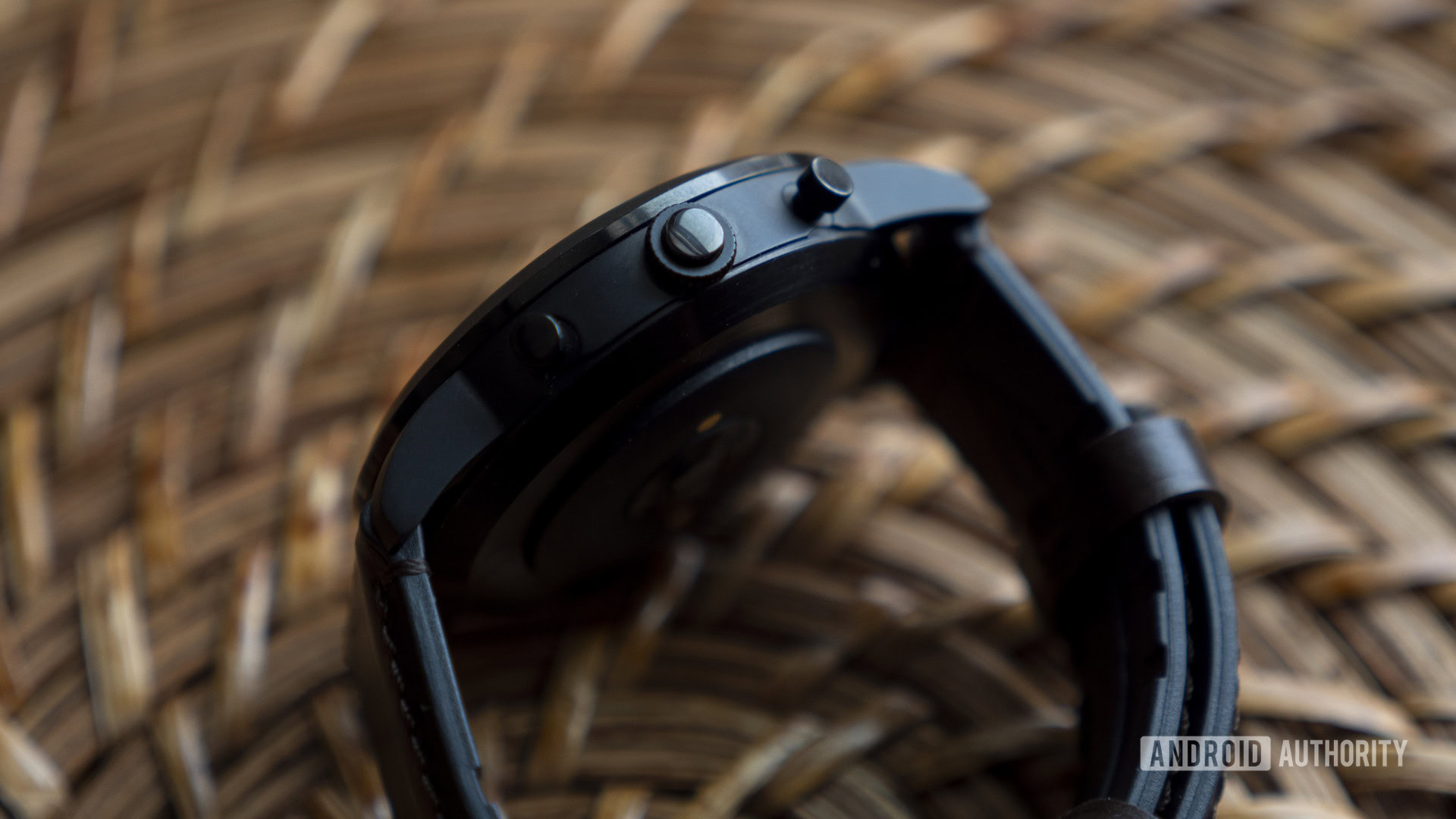
Small gripes like that aside, I dig the look of the Hybrid HR. It’s classy and professional without looking too much like a smartwatch, and a lot of people will appreciate that. Now, if Fossil could get that button situation figured out.
The dark brown leather straps that came with my Hybrid HR review unit are really nice. They’re made of quality leather, and they have plastic underneath, so you don’t sweat all over the leather. It’s a nice touch.
Smartwatch features

- Smartphone notifications
- Silent alarms
- Multiple time zones
- Compatible with Android 5.0+/iOS 10.0+
- Bluetooth 5.0
Software features are limited on the Hybrid HR. If you prefer “dumber” smartwatches, you’ll feel right at home here. If you need all the extra stuff — LTE connectivity, contactless payments, smart home controls, onboard music storage, etc. — move along.
As mentioned, you can assign shortcuts to the side buttons. Your options are: workout mode, wellness dashboard, stopwatch, music control, timer, and weather. The wellness dashboard shows your previous night’s sleep, as well as your daily steps, active minutes, calories burned, and resting and max heart rate (more on those later).
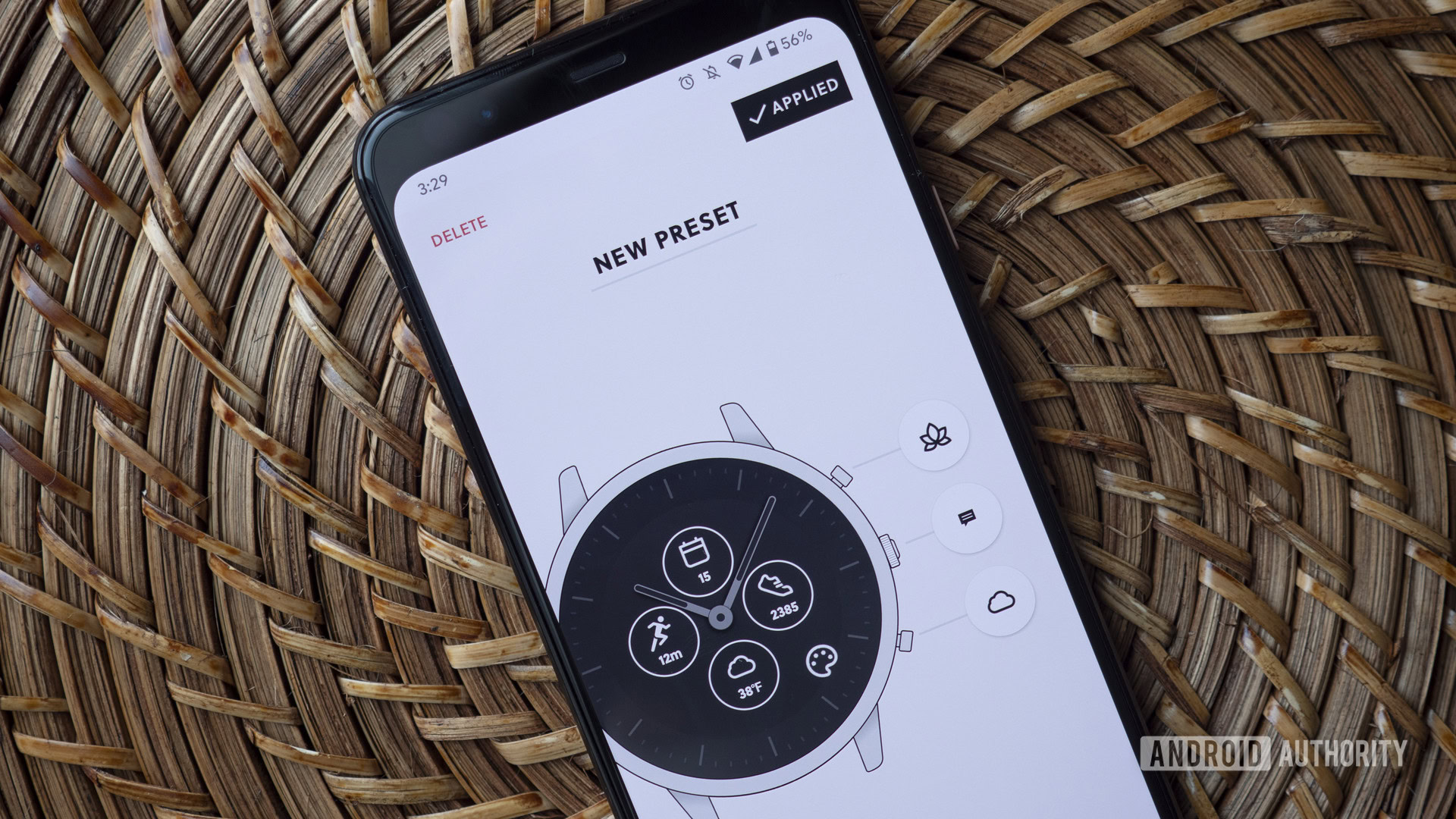
The watch face options are pretty limited, though they have improved since the watch’s release. Previously, you could only change the data that appears in each one of those four dials in the image above. Now, watch faces are much more customizable. You can swap data complications, change the background image, and more.
Don’t miss: How to use Fossil’s smartwatch app for your hybrid watch
Since this is technically a smartwatch, I was hoping to see more watch face options. Maybe a digital watch face? Or maybe something that isn’t so… structured? Both of those things would’ve helped bring a little more customization to the Hybrid HR.
You can choose seven different complications to put on your watch face: day/date, active minutes, steps, current weather, chance of rain, heart rate, and second time zone. Simple. Not much to choose from, but most people should be happy with those options.
The Hybrid HR also features silent alarms, move alerts, and app notifications. On December 19, Fossil rolled out an update (version 4.2) to the Fossil Smartwatches app that brought support for all smartphone notifications. Previously only 13 were available, but now you can turn on as many notifications as you’d like.
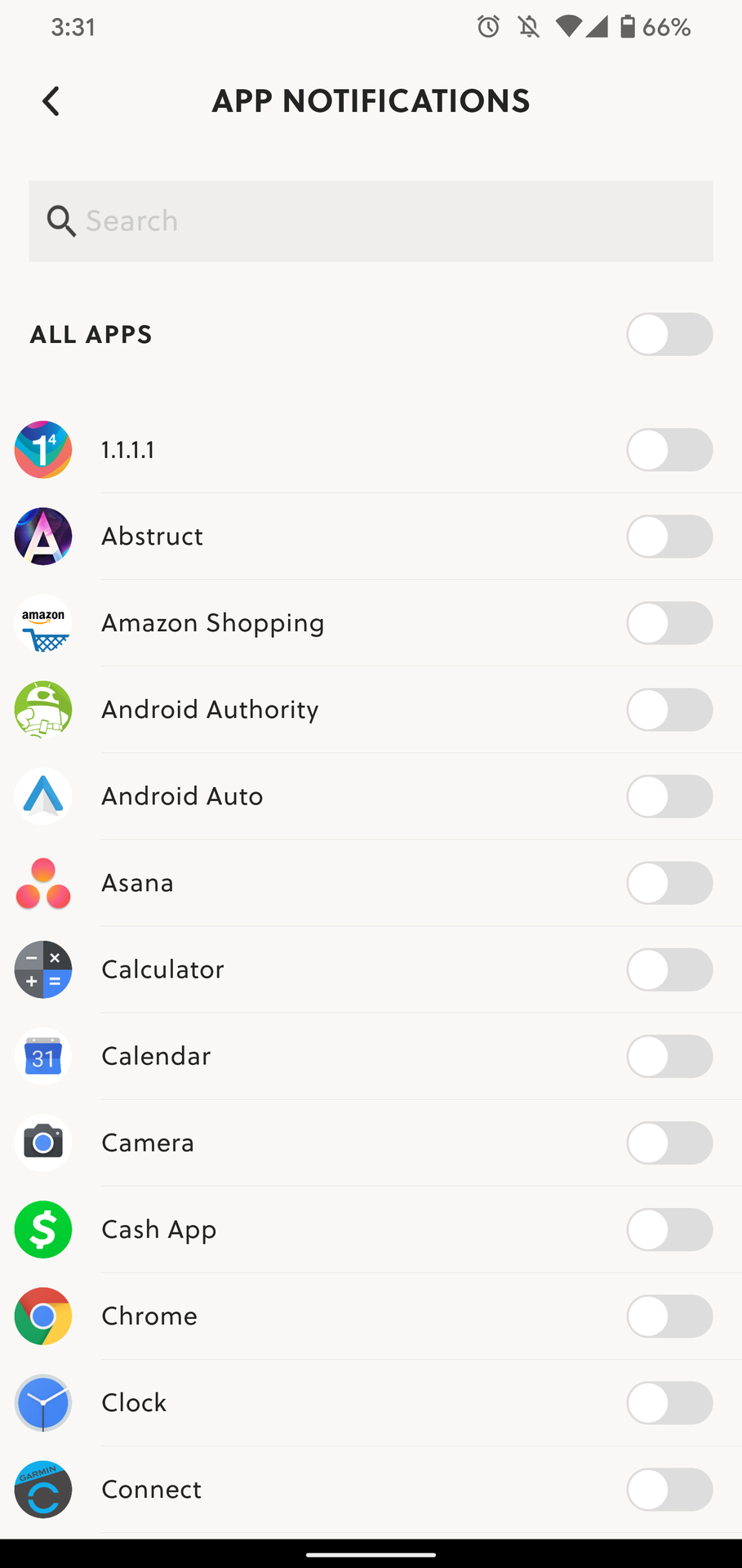
Fossil pushed another update to its Smartwatches app in June 2022. Version 5.0 brings a refreshed layout with a vertical battery bar, a new app layout, and tweaked weather and music apps. There’s also a new rotary style for navigating the menu on the watch. Judging by the online reception, this update is divisive, to say the least.
It’s safe to say that the software experience on the Fossil Hybrid HR remains one of its weakest points, and not down to the functionality, but rather user experience.
Also read: Fitbit vs. Garmin: Which ecosystem is right for you?
Fossil Hybrid HR review: Hardware and performance
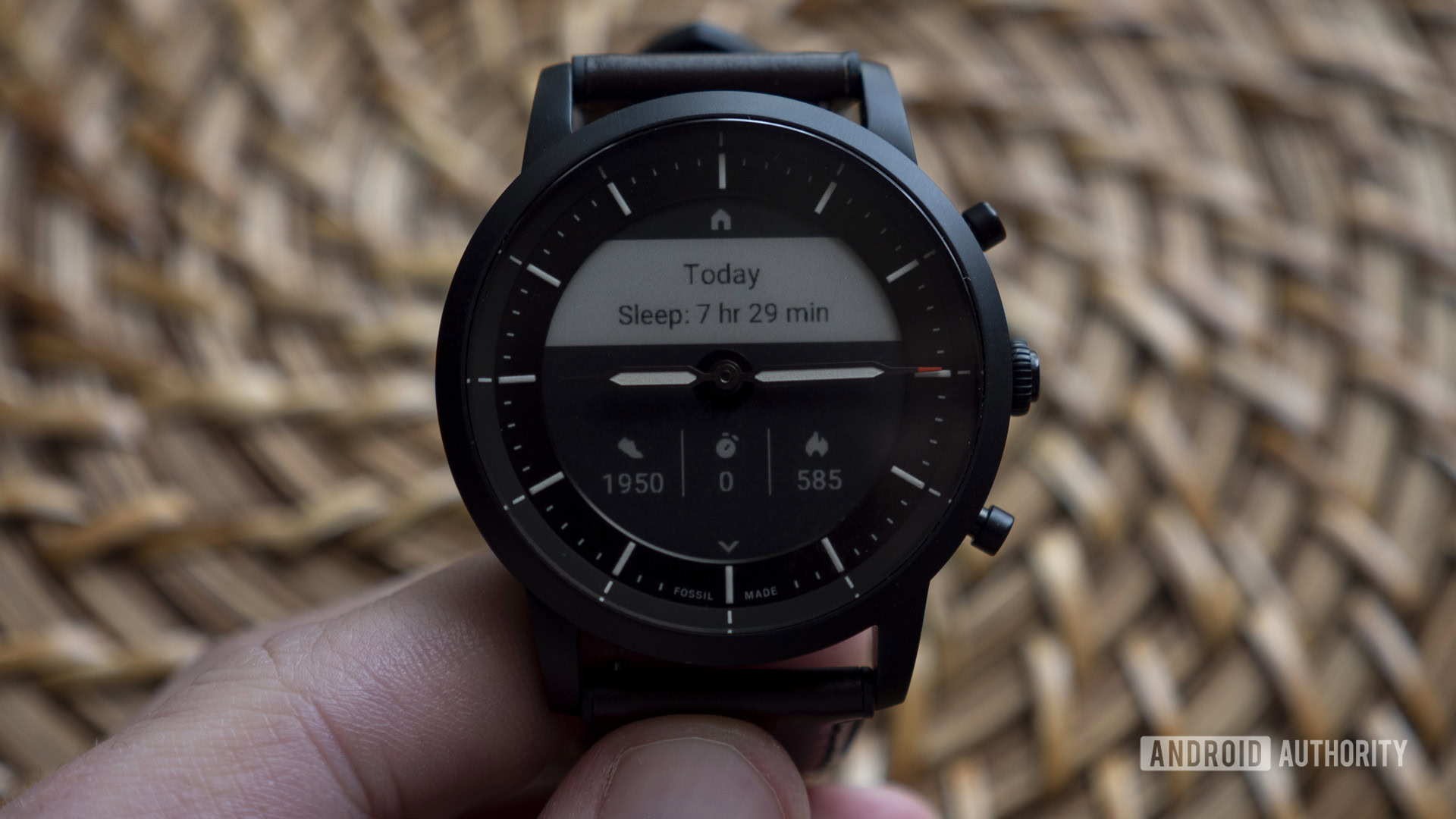
- Optical heart rate sensor
- Accelerometer
- No GPS options (connected or built-in GPS)
- 3ATM water resistance
If you want to use the Fossil Hybrid HR for fitness and health, you can, but I wouldn’t recommend it.
It can keep track of your steps taken, calories burned, active minutes, resting and active heart rate, and sleep. Step tracking was actually quite accurate in my testing. Compared to the Fitbit Versa 2 and Garmin Forerunner 245 Music, the Hybrid HR’s step counts were much closer to the Forerunner 245’s counts at the end of each day, while the Versa 2 way overshot my daily step count, as it is wont to do.
There’s also no built-in GPS or connected GPS options here, so it won’t give you very accurate distance metrics when you’re out on a run.
The Hybrid HR has an optical heart rate sensor for keeping track of resting and active heart rate throughout the day. Considering the Fossil Gen 5 heart rate sensor’s tendency to overshoot maximum readings during workouts, I didn’t expect much from the Hybrid HR. The screenshots below pretty much confirm the Hybrid HR runs into the same issues as the Fossil Gen 5.

The screenshots here show a four-mile treadmill run lasting about 35 minutes. Note that the Wahoo Tickr X chest strap readings actually start at around the 24-minute mark after the dip — it began automatically recording earlier than I expected.
The Garmin Forerunner 245 Music and Wahoo Tickr X recorded the same maximum heart rate of 176bpm at around the 33-minute mark. The Hybrid HR’s max reading was 187bpm, though it’s difficult to tell exactly what time this took place. Fossil’s smartwatch app doesn’t exactly make it easy to see detailed heart rate readings. And no, there’s no web interface either.
Related: The best Fossil smartwatches
You’ll also notice a couple of hours in the Fossil screenshot that the heart rate monitor just cut out completely. That day, I wore the Hybrid HR literally all day and took it off briefly after my workout. Frankly, I’m not sure what’s going here. Fossil has been notified of this issue, though we have yet to hear any updates on the situation.
The Forerunner 245 and Wahoo Tickr X reported similar readings throughout the workout. There were no major dips or irregularities with either device, and both even recorded the slight dip at the 28-minute mark. It’s tough to tell if the Hybrid HR’s recordings are accurate due to the compact view of the data in the Fossil app. As far as I can tell, there’s no way to export heart rate data for manually uploading to a better app.
Bottom line, I’ve had quite a few issues with the Hybrid HR’s heart rate sensor. It’s inconsistent, and obviously, the fact that it cuts out every once in a while is not a good sign.
Sleep tracking is a bright spot for the Hybrid HR when it tracks your sleep. I’ve worn the Hybrid HR to bed every night since it was sent to me, and it flat-out didn’t record my sleep in the Fossil app one night. Luckily the sleep data was populated in Google Fit, so it wasn’t all lost, but still, that’s… not a good look. Again, Fossil has been notified of this issue.
When it does track your sleep, it does so pretty accurately. Most of the time, it was able to accurately record when I fell asleep and woke up during the night, as well as my light and deep sleep patterns. I have a 14-year-old pug who has to wake up every morning at around 4 a.m. to go outside. Each night I wore the Hybrid HR to bed, it recorded those times I woke up and the times I fell back asleep.
The Fossil smartwatch app
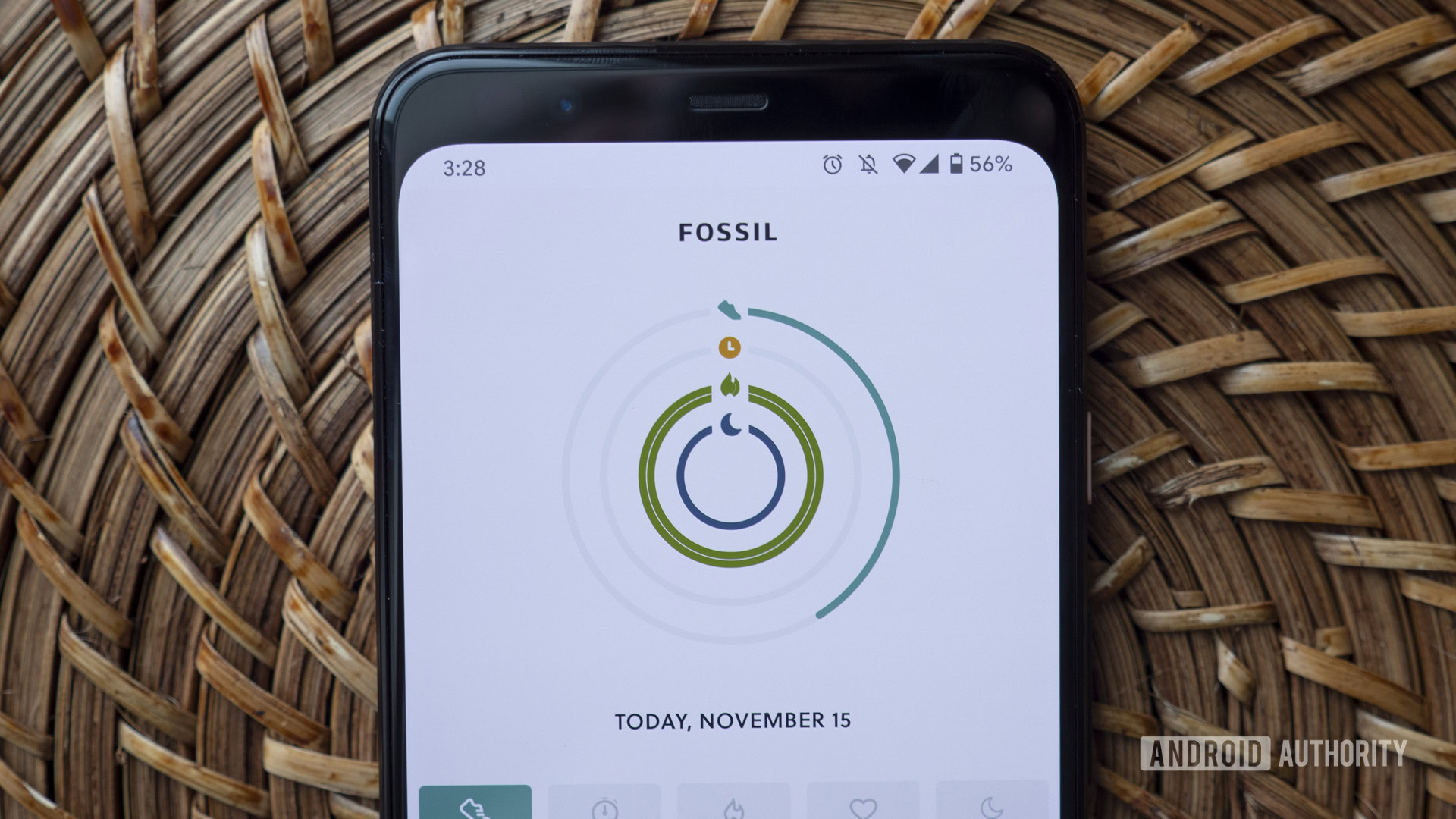
Since the Fossil Hybrid HR interface is so minimal, you’ll spend your time looking at fitness stats and customizing watch faces in the Fossil Smartwatches app. There isn’t a lot to do in this app, but I have to commend its intuitive and clean design.
Fitness and health data is found on the first screen. There are Apple Watch-like activity rings at the top, showing your daily step count, active minutes, calories burned, and sleep. You can’t click on the rings to show more information, which I thought was a little odd.
Below that is a series of five activity tabs, again showing your steps, active minutes, calories, heart rate, and sleep. Click on any one of those tabs to view activity information for the day, week, and month. It’s all pretty simple to navigate. If I had one complaint, it would be that the activity data screens aren’t nearly as full-fledged as some other fitness apps.
To help with this, you can pair your Fossil smartwatch with Google Fit or Under Armour Record if you prefer to see your activity data in one of those apps. Personally, Google Fit isn’t for me — it’s much too simple and bare-bones for my liking. If you want to see your fitness stats in a more detailed capacity, you should switch to Under Armour Record.
The next tab over is the Customization tab, where you’ll edit your watch face. Again, everything here is pretty easy to navigate.
Following that is the Alerts tab. This is where you’ll set alarms, change call and notification preferences, and turn on/off move alerts. Remember, the Hybrid HR’s on-device controls are limited, so this is the only place you can control these types of settings.
Value
The Fossil Hybrid HR is usually available from Fossil.com and Amazon for ~$175. Depending on where and when you look, this price can dip to as low as $100. It comes in many different styles. Originally, it was only offered in the more masculine Collider HR (our review unit) and the more feminine Charter HR, but now there are many more options to choose from.
All things considered, I think $175 — and especially sales prices below this — is a fair price to pay for the Hybrid HR. It gets you more functionality than a hybrid watch without a display but far fewer features than a Wear OS watch. With that said, the competition is tight, and the Hybrid HR’s competitors shouldn’t be overlooked at this price range.

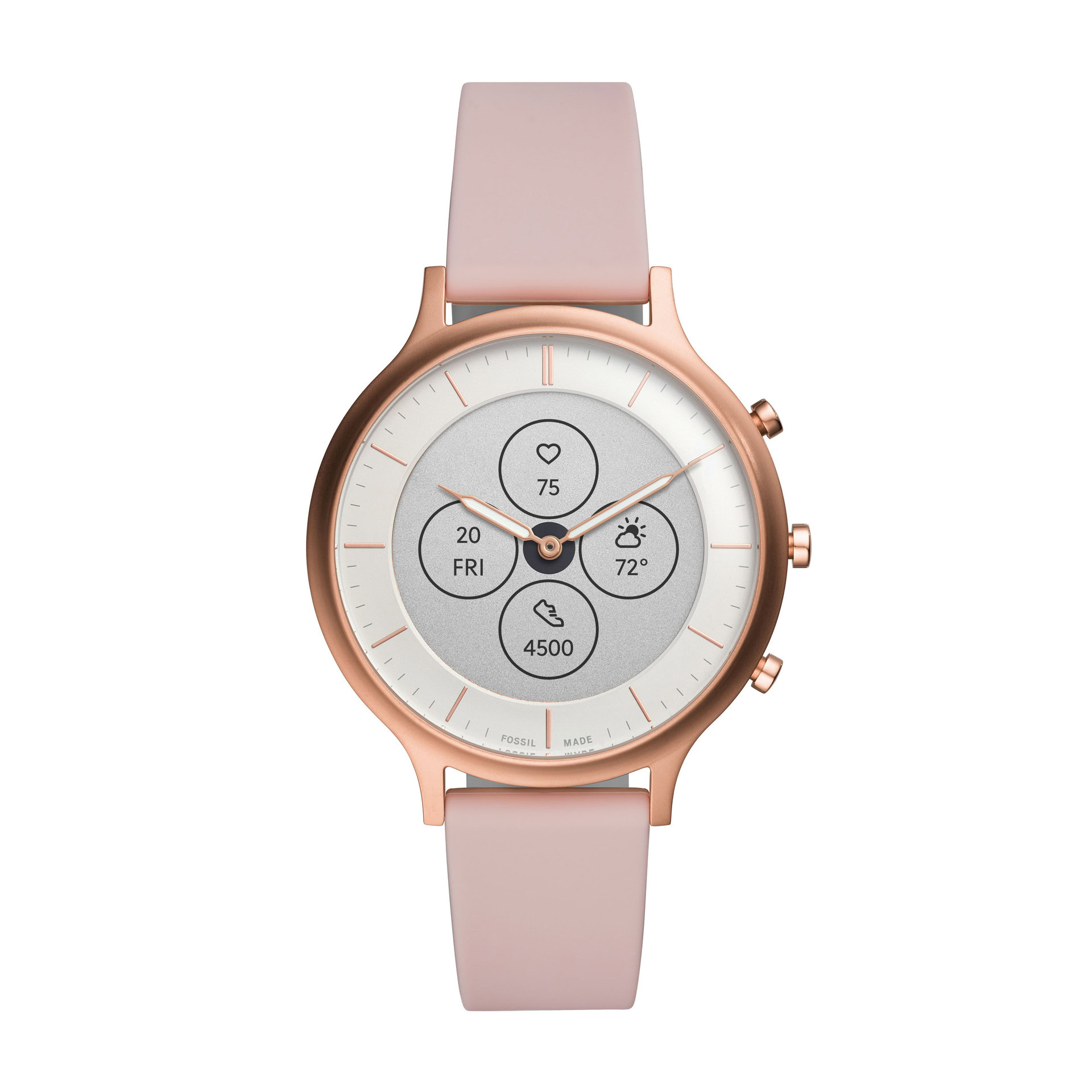
For starters, if you’re not a fan of the Fossil Hybrid HR’s aesthetics but are still interested in its functionality, consider the SKAGEN Jorn Hybrid HR. It’s essentially the same watch, only designed by the SKAGEN team.
Garmin’s Vivomove 3 and 3S might be $50 more than the Hybrid HR, but they’ll likely get you a more accurate and feature-packed hybrid watch experience. The Vivomove 3 and 3S also have analog watch hands, but they come with hidden displays that only show up when you need them, as well as connected GPS, proven heart rate sensors, and Garmin Pay (if you don’t mind spending extra for it).
Coinciding with the Fossil app update, the company also announced its new Gen 6 Hybrid series, priced at $229. You should arguably wait for its imminent debut before leaping for a Hybrid HR.
Fossil Hybrid HR review: The verdict

Fossil got a lot right with the Hybrid HR — I love the e-ink display, I love the way it looks, and I love the two-week battery life. It’s one of the only watches on my desk that I’m willing to wear every day despite its flaws. A lot of that has to do with the display; e-ink on a smartwatch makes so much sense.
If you look past the beautiful aesthetics, you’ll, unfortunately, find some half-baked features that tarnish the experience. Don’t buy the Fossil Hybrid HR for its fitness or health tracking or ease of use — you’ll be sorry if you do.
You'll love the Fossil Hybrid HR — as long as you don't rely too much on its fitness features.
But if you’re willing to spend $200 on a smartwatch and not rely on the fitness features, I think you’ll be happy with the Fossil Hybrid HR. It’s a solid first try for what I think will make for a very successful product line down the road. I’m going to continue wearing mine every day, but I can’t wait for the second or third generation when Fossil makes some hardware improvements. Judging by the Gen 6 Hybrid, the company is moving in the right direction.